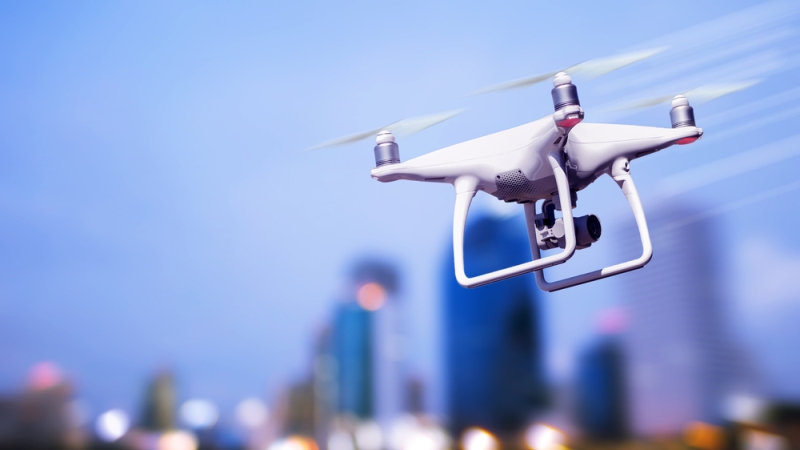
Officials from the Department of Justice (DoJ) and the Department of Homeland Security (DHS) want lawmakers to give them extended authority to address the growing threat of domestic drone aircraft.
At a July 14 Senate Homeland Security and Governmental Affairs Committee hearing, officials from DoJ and DHS asked lawmakers to give local and state law enforcement the power to counter drone threats, and to expand the existing authority given to Federal agencies, which is poised to expire this fall.
Drone use in the U.S. has climbed steadily in recent years, and the Federal Aviation Administration estimates that by 2024, about 2.3 million unmanned aircraft systems, including 1.5 million recreational drones, will be registered to fly in U.S. airspace. However, as the use of these technologies continues to increase, so have safety concerns, officials said.
“Like many advances in technology, drones also bring serious risks to the public when they’re misused,” said Brad Wiegmann, deputy assistant attorney general for the National Security Division at DoJ.
Samantha Vinograd, acting DHS assistant secretary for Counterterrorism and Threat Prevention, told lawmakers that the existing power provided to Federal agencies has gaps that need to be closed as Congress moves to reauthorize the authorities given to Federal law enforcement officials.
For example, domestic drones pose an increased threat to airports which need to keep track of everything in nearby air space to avoid collisions with planes. The Transportation Security Administration (TSA) oversees airport security, but it lacks authority to proactively protect transportation infrastructure from drone threats, she said.
“Congress must expand TSA’s power to mitigate drones when they’re detected in nearby skies. The extension would not only protect human life but also minimize the economic impact on airports forced to shut down due to drone sightings,” Vinograd said.
Additionally, Wiegmann explained that the demand for counter-drone support outstrips the Federal government’s limited resources. Therefore, the Federal government “needs to begin empowering state and local officials to help take on this responsibility,” he said.
Wiegmann also highlighted the benefit of a pilot program that would enable several state and local law enforcement entities each year to engage in drone detection and mitigation activities.
“The program would enable more gatherings, including large-scale sporting events, to be protected through counter-drone technology,” Wiegmann said.
In response to Wiegmann and Vinograd’s testimonies, the Biden administration called on Congress to close many of the gaps both officials highlighted during the hearing. Sen. Gary Peters, D-Mich., chairman of the committee, said he plans to introduce bipartisan legislation in the coming weeks to reauthorize and strengthen counter-drone authorities.
